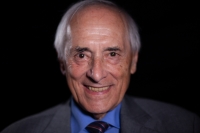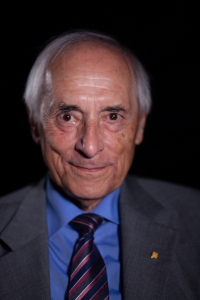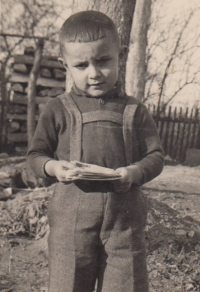The expulsion is a rift in my personality, today I spread ideas of democracy to avoid injustice being repeated

Download image
Helmut Bernert was born on 24 June 1935 in Opava, to a German family with Czech roots. His father Franz was a member of the Sudeten German Party, during the war he served in the Wehrmacht, fighting in Ukraine. His older brother also enlisted. In 1943 his father returned to Opava due to illness, in 1944 the family was subsequently evacuated to a small village near Šternberk. His father eventually deserted and the family survived the last of the fighting of the war in early May 1945, hidden in the woods. Their walk back to Opava on foot took four days. The father was arrested at the city limits, he remained in prison almost continuously until expulsion in May 1946. On returning, the children and their mother found their house had burnt down, and so they lived in the workshop behind the house. In July of 1945, the older brother also returned and in November their youngest sister was born. Ten-year-old Helmut took care of the family, including shopping. His father’s Czech colleagues brought the family food at night, one of them helped out the father, buy requesting him from prison as an assistant. In May 1946 the whole family was expelled in a transport via Prague to Hesse, to a small village of Rengershausen, where they were not welcomed in the kindest manner. Helmut initially helped out his father, but after his illness and the collapse of the business, he decided to study and eventually became a teacher of history and political education. He led his students towards democracy, always emphasizing how important it was that the injustices of the Second World War never be repeated again. He lives in the town of Kassel, from 1979 he has been visiting Czechoslovakia and the Czech Republic, where he carries out archival research.


